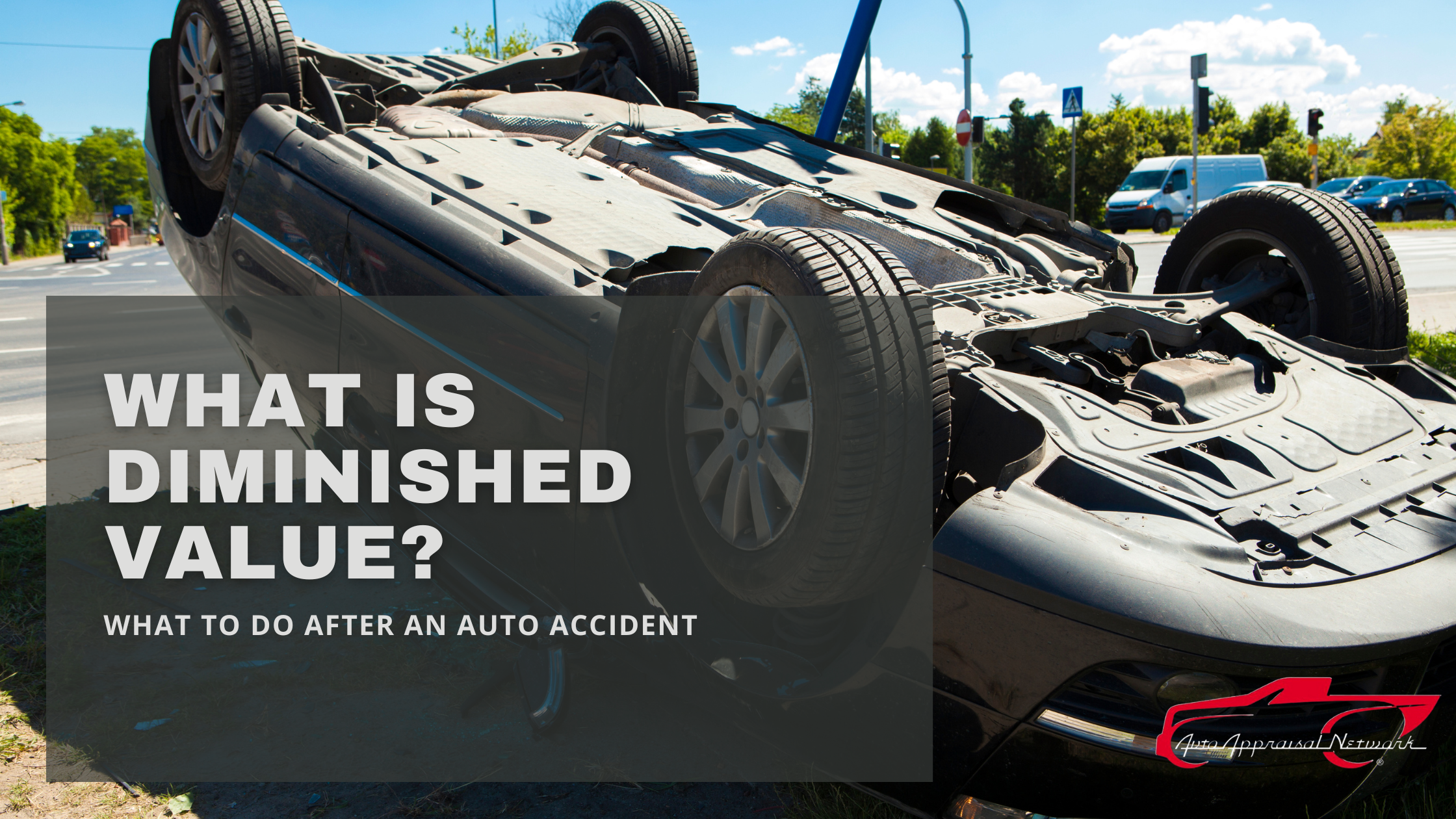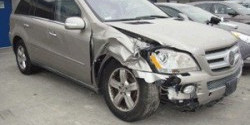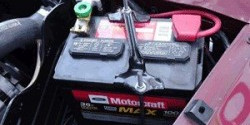What is Diminished Value?
What is Diminished Value?
You might be surprised to learn that after your car has been in an accident, even if it is fully repaired by a certified body shop, its value will still be less than that of a vehicle that has never been in an accident. This difference in value is called the ‘diminished value’. This amount should be accounted for and paid out by the insurance company, though many insurance companies are not forthcoming with this information. Diminished value claims usually require you, the owner of the vehicle, to get an appraisal to determine the exact loss. This amount could be significant, into the thousands of dollars.
Types of Diminished Value Assessments
The diminished value of a car is the reduction in the vehicle's market value after it has been damaged in an accident and subsequently repaired. In insurance claims, it represents the loss in value that isn't necessarily rectified by repairs. Here are some different types of assessments that may be used to determine your vehicle’s diminished value:
- Immediate Diminution in Value: The difference in the market value of the vehicle immediately before and immediately after an accident. This method is straightforward but requires accurate assessment of the car's value before the accident and right after, before any repairs. Hiring a certified independent appraiser will be in your best interest in most cases, especially if your car is a classic, has customizations and/or upgrades, is considered a luxury vehicle, or is rare.
- Inherent Diminished Value: The most common type of diminished value. It refers to the loss in value of your car due to the mere fact that it has a history of damage. This loss persists even after full repairs have been made. Typically, this is calculated by assessing the car’s value if it were undamaged and subtracting the value post-repair.
- Repair-Related Diminished Value: This refers to the diminished value caused by less-than-perfect repairs. For instance, if the color match is slightly off or aftermarket parts were used instead of original equipment manufacturer (OEM) parts, the vehicle might lose value.
- Formula-Based Assessment: Some insurers and courts use specific formulas to estimate diminished value. One of the more famous formulas is the "17c Formula," originally used by State Farm. It starts with the vehicle’s value and adjusts it based on damage severity and mileage.
Keep in mind that, unless you have a stated value insurance policy, most insurance companies are basing your car’s value on the Kelley Blue Book or NADA value, which only accounts for standard equipment, and not any aftermarket mods or customizations. In older cars, such as classics, there may not be enough data for NADA to estimate your car’s value. However, an experienced, independent car appraiser can, and will use similar comparable vehicle sales to document your car's actual value, while taking into account the expected depreciation and general condition of the car. An appraiser will prove your car's diminished value because of the accident, which is an amount above and beyond its depreciation.
How The Diminished Value Is Determined
- Assessment of Pre-Accident Value: Your appraiser begins the process by determining your vehicle's market value just before the accident. Factors such as make, model, year, mileage, features, and overall condition are taken into account. Different automotive databases will be utilized for this purpose.
- Review of Repair Documents: Your appraiser examines all repair documentation to understand the extent of the damage and the quality of the repairs done. This includes looking at parts invoices, labor records, and photographs of the damage.
- Inspection of the Vehicle: Your appraiser physically inspects your vehicle to assess its current condition, as well as the quality of repairs. This might include checking for visual discrepancies, the functionality of repaired components, and any signs of underlying damage that wasn’t properly addressed.
- Market Research: Your appraiser conducts market research to compare the vehicle’s value with similar models that have not been involved in accidents. This step might involve gathering data on sales of comparable vehicles in the same geographic area. In cases of classic and custom cars, luxury, high-end or rare cars, using an experienced appraiser to assess your car will be invaluable.
- Calculation of Diminished Value: Using the gathered information, your appraiser calculates the diminished value. This can be done using a formula (like the 17c formula) or based on a percentage loss typical for vehicles with similar damage history. Sometimes, professional judgment based on experience is needed when there are no recent comparable cars.
- Preparation of a Report: The final step is to compile an appraisal report, which includes your appraiser’s findings, methodology, and the calculated diminished value. This report can be used for insurance claims or legal proceedings to support the claim for diminished value compensation.
Auto Appraisal Network of Charlotte is an independent appraiser specializing in appraisals for classic and custom cars, trucks, and motorcycles, as well as late model vehicles, including luxury cars, for insurance claims, insurance policies, legal purposes and financial needs. Our appraisals are certified and accurately document your vehicle’s value using color photos and a detailed assessment in a comprehensive report accepted by insurance companies, financial institutions and the legal system.
If you are in Charlotte, NC or any of the surrounding areas, have recently been involved in a car accident and feel that the amount of money offered to you by the insurance company isn’t accurate, give us a call. We’ll let you know if we think having an appraisal done will be worth it. In many cases, our clients have gotten thousands more for their car after having an appraisal done by Auto Appraisal Network.
In addition to diminished value appraisals, we do pre-purchase inspections, appraisals for financing, bankruptcy, estates, and for insurance purposes. We offer same-day or next-day services, depending on your location. Call us at (704) 703-4801 to schedule your appraisal today.
Auto Appraisal Network of Charlotte specializes in appraisals for classic, custom and collector vehicles, including cars, trucks, SUV's, motorcycles, boats and personal watercraft. We do appraisals for insurance policies and claims, such as diminished value and total loss, probate, bankruptcy, divorce, financing, fair market value and pre-purchase inspections.
Our appraisals are certified and accepted by the legal system, insurance companies and financial institutions. When you need an accurate, fair assessment of the value of your ride, you need Auto Appraisal Network of Charlotte. Call (704) 703-4801 to schedule your appraisal today.
Tags
All blog insurance claim insurance settlement Insurance Adjuster Custom car appraisals total loss ExpertCarAppraisals ProfessionalAppraiser carfax classic car appraiser independent car appraiser diminished value claim pre-purchase car inspection car accident value loss Diminished Value Appraisal Charlotte Not At Fault Accident Trade-In Value Charlotte Car Accident Help Diminished value North Carolina Independent auto appraiser AI comps insurance Auto Appraisal Network Charlotte CharlotteAutoAppraisal CarAppraisalCharlotte CarAccidentHelp Salvage Title Rebuilt Title Cars For Sale Pre-purchase inspections used car inspections Car Podcast Insurance Hacks Auto Appraisal Network - Charlotte Car Buying Tips Used Car Values agreed value insurance best insurancePrevious post
 What Is a Custom Car? (And Why It Matters More Than You Think)
What Is a Custom Car? (And Why It Matters More Than You Think)
Custom cars aren't always a flashy hot rod, a street racer, or a fully built show vehicle. A custom car doesn’t have to look extreme to qualify as “custom.” If you've made after-market mods to your ride, then you need to read this!
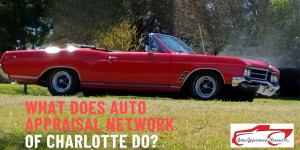 What Auto Appraisal Network of Charlotte Does
What Auto Appraisal Network of Charlotte Does
What kinds of cars does AAN appraise? Why do I need an appraisal for my car? The answer to these questions and more here.
 What I Learned About Car Appraisals at a Dealership vs. an Independent Appraiser in Charlotte, NC
What I Learned About Car Appraisals at a Dealership vs. an Independent Appraiser in Charlotte, NC
Curious about the difference between dealership trade-in appraisals and certified auto appraisals in Charlotte, NC.? Learn why hiring an independent appraiser gives you the real value for your car or truck.
 Every Car Has a Story: Decoding the Auto Appraisal Industry
Every Car Has a Story: Decoding the Auto Appraisal Industry
When it comes to understanding what your car is really worth, not all appraisals are created equal. Auto Appraisal Network pulls back the curtains on the misunderstood world of auto appraisals on the Kortex Media Podcast.
 Is a Car With a Rebuilt Title Safe to Drive?
Is a Car With a Rebuilt Title Safe to Drive?
You found your dream car at an unbelievable price- but it has a rebuilt title. Will your dream car become a living nightmare?
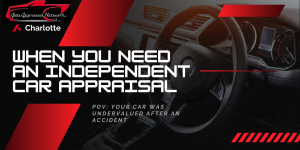 When You Need An Independent Car Appraisal
When You Need An Independent Car Appraisal
After a car accident, don’t settle for less. Learn when to hire an independent auto appraiser to fight for fair diminished value or total loss compensation.
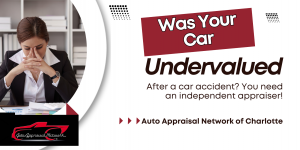 Diminished Value Appraisals in North Carolina | Auto Appraisal Network of Charlotte
Diminished Value Appraisals in North Carolina | Auto Appraisal Network of Charlotte
Think your insurance payout was too low after an accident? Learn how Auto Appraisal Network of Charlotte helps North Carolina drivers claim diminished value and get what they’re owed.
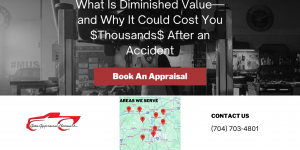 What Is Diminished Value—and Why It Could Cost You Thousands After an Accident
What Is Diminished Value—and Why It Could Cost You Thousands After an Accident
If your car has ever been in an accident, you may be facing a hidden financial loss. Here’s what you need to know.
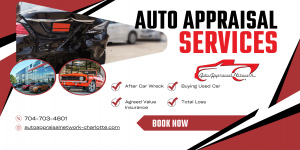 3 Ways an Independent Car Appraiser Can Save You Money | Auto Appraisal Network
3 Ways an Independent Car Appraiser Can Save You Money | Auto Appraisal Network
Discover how hiring an independent car appraiser can help you claim diminished value, secure the right insurance, and avoid costly used car mistakes. Learn more!
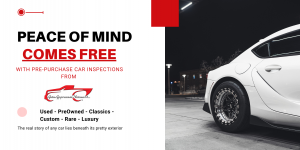 The Importance of Pre-Purchase Inspections for Pre-Owned, Classic, and Custom Cars
The Importance of Pre-Purchase Inspections for Pre-Owned, Classic, and Custom Cars
What lies beneath a shiny exterior is what really matters when buying a pre-owned car. A simple pre-purchase inspection can protect you from making a costly mistake. Find out how.
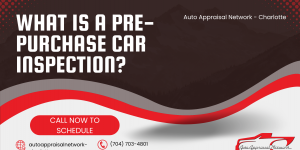 What Is A Pre-Purchase Car Inspection?
What Is A Pre-Purchase Car Inspection?
Learn about the benefits of a pre-purchase car inspection when buying a used car, especially if the car is in a different area. Don't buy sight unseen- Get a professional inspection first!
 Used Car Buying Tips
Used Car Buying Tips
With the used car market as competitive as ever, it is a 'buyers beware' environment. A pre-purchase inspection on a used car for sale can help you make an informed purchase and protect your investment. Get tips from the pros on buying used cars.
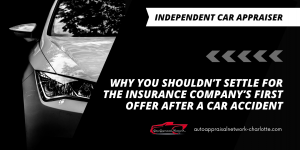 Why You Shouldn't Settle for the Insurance Company’s First Offer After a Car Accident
Why You Shouldn't Settle for the Insurance Company’s First Offer After a Car Accident
After a car wreck, you just want to get back to normal as quick as possible, and accepting whatever offer the insurance company makes is one step closer to that. However, they may still owe you thousands of dollars that you won't ever get- unless you do this one thing.
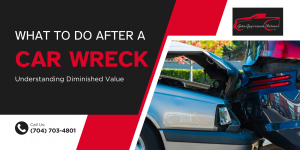 Understanding Diminished Value: What You Need to Know After an Accident
Understanding Diminished Value: What You Need to Know After an Accident
Understanding this one thing following a car wreck could help you get thousands more from the insurance company.
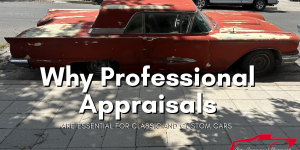 Why Professional Appraisals Are Essential for Classic and Custom Cars
Why Professional Appraisals Are Essential for Classic and Custom Cars
Can't find your car's accurate value using an online value estimator? Classic and custom car owners need a professional appraisal that will account for all the work that has been done to make your auto unique.
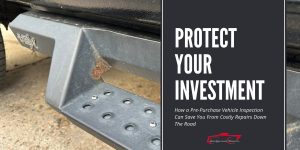 Avoid Costly Mistakes: The Importance of Pre-Purchase Inspections in Charlotte
Avoid Costly Mistakes: The Importance of Pre-Purchase Inspections in Charlotte
Focusing on the financial benefits, this piece explains how a pre-purchase inspection can prevent buyers in Charlotte, NC, from making costly mistakes. It discusses common issues uncovered during inspections and how identifying these problems can lead to informed purchasing decisions.
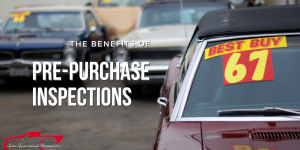 Avoid Buyer's Remorse: Why a Pre-Purchase Inspection is a Must for Used Cars
Avoid Buyer's Remorse: Why a Pre-Purchase Inspection is a Must for Used Cars
Uncover the significance of pre-purchase inspections for used cars, focusing on how they can prevent future regrets by uncovering hidden issues and ensuring the car's condition matches its price.
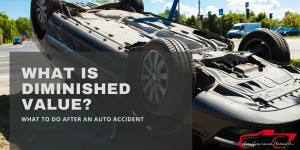 What is Diminished Value?
What is Diminished Value?
The diminished value of your car after it has been in an accident can be thousands of dollars that the insurance company may owe to you. A professional appraisal can prove the loss in value.
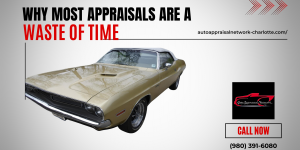 Why Most Appraisals Are A Waste of Your Time
Why Most Appraisals Are A Waste of Your Time
Whether you are in the market for a new vehicle, were involved in a car accident, are executor of an estate, considering bankruptcy, or you’re going through a divorce, Using online and free resources to find out your car’s value can help give you a general idea, but should not be used as the determining factor. Find out why paying for an appraisal is well worth it.
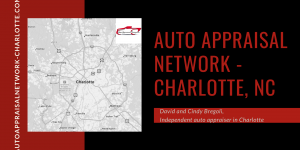 Auto Appraisal Network Announces New Location in Charlotte, NC
Auto Appraisal Network Announces New Location in Charlotte, NC
Auto Appraisal Network recently announced the grand opening of its newest location in Charlotte, NC on February 22. 2024. The new location is owned by David and Cindy Bregoli and serves car owners and auto enthusiasts in Charlotte and the surrounding towns and communities.
 What is the difference between a Car Appraiser and a Car Adjuster?
What is the difference between a Car Appraiser and a Car Adjuster?
If you're dealing with a wrecked or totaled vehicle, knowing the difference between these two professionals is going to be beneficial for your bottom line.

